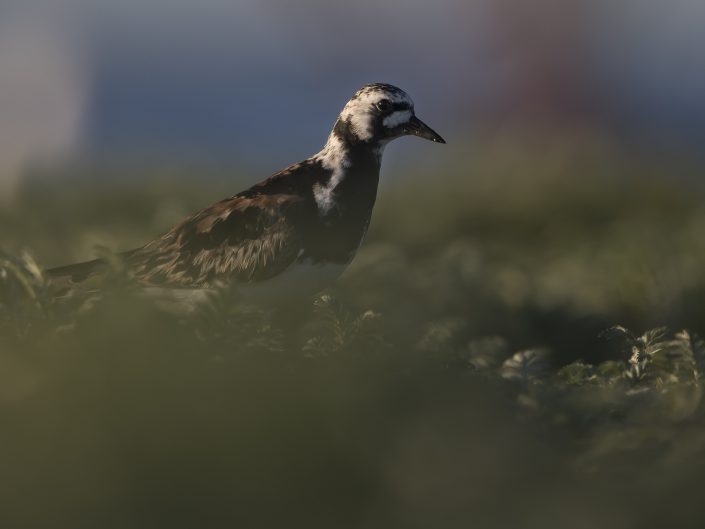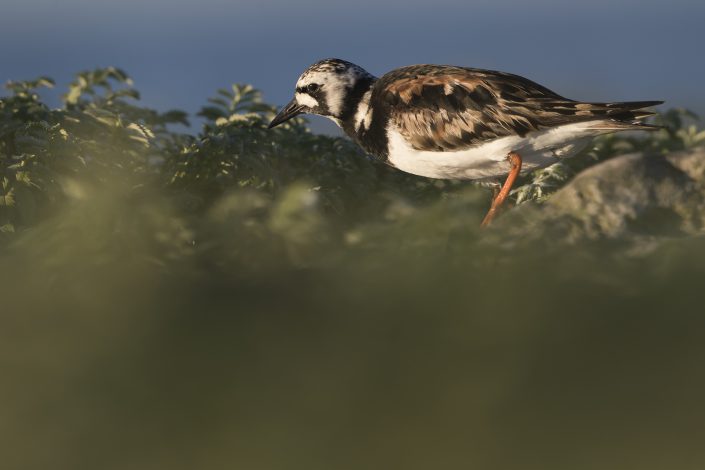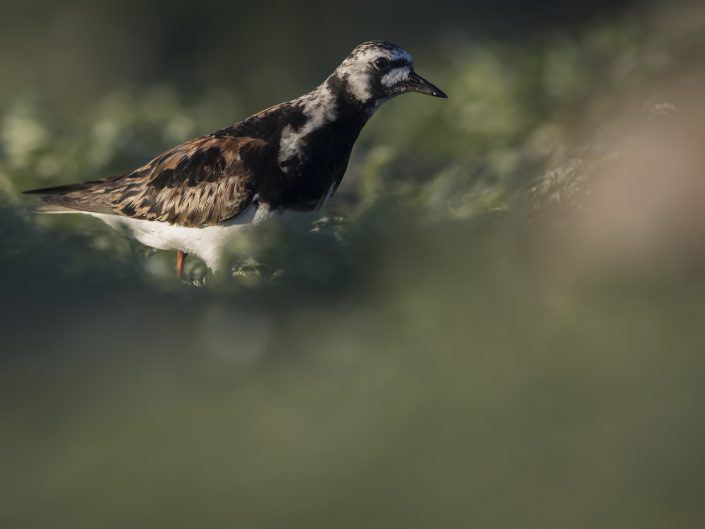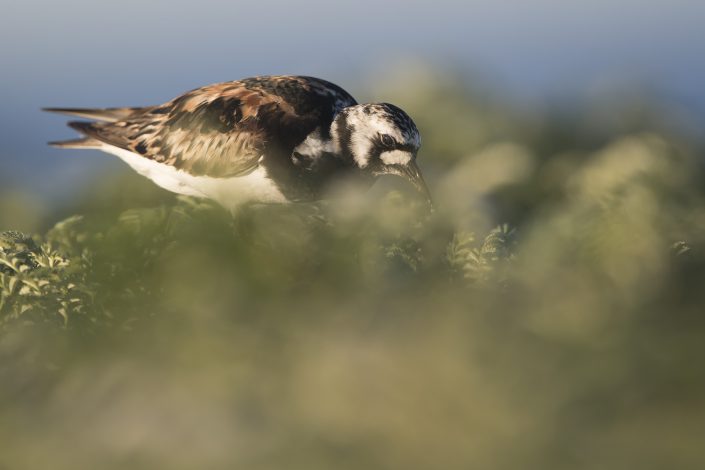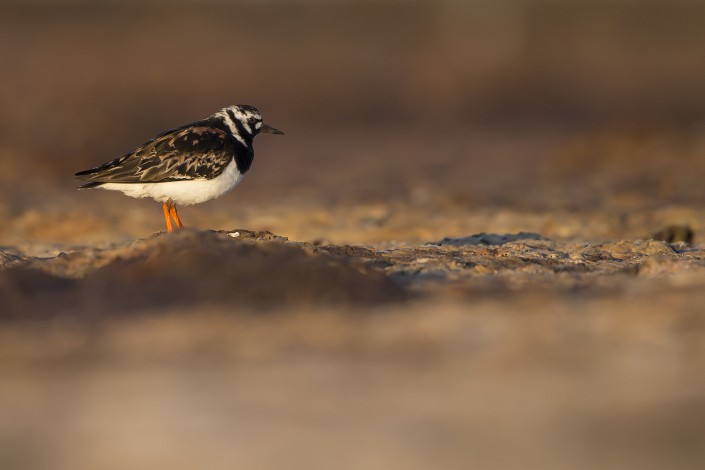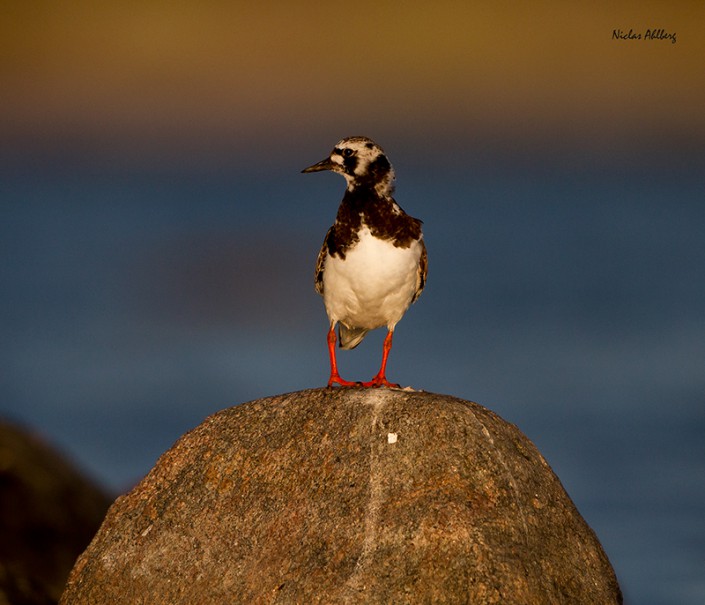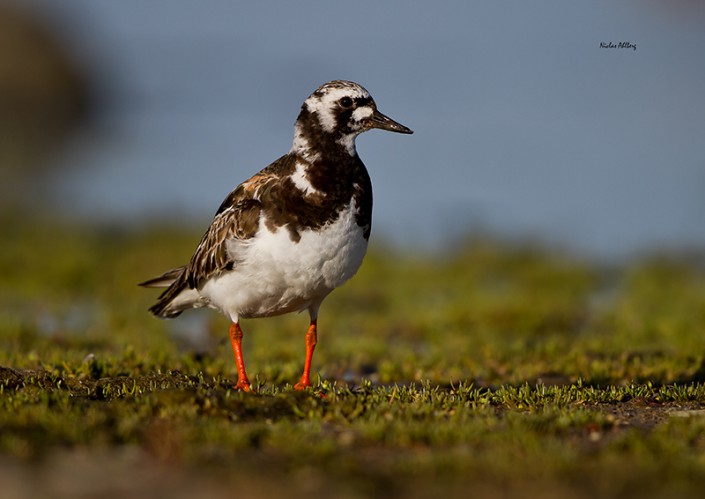This post is also available in: Swedish
Ruddy turnstone – Arenaria interpres
Ruddy turnstone – Arenaria interpres
It is a fairly small and stocky bird, 22–24 cm (8.7–9.4 in) long with a wingspan of 50–57 cm (20–22 in) and a weight of 85–150 g (3.0–5.3 oz). The dark, wedge-shaped bill is 2–2.5 cm (0.79–0.98 in) long and slightly upturned. The legs are fairly short at 3.5 cm (1.4 in) and are bright orange.
In all seasons, the plumage is dominated by a harlequin-like pattern of black and white. Breeding birds have reddish-brown upper parts with black markings. The head is mainly white with black streaks on the crown and a black pattern on the face. The breast is mainly black apart from a white patch on the sides. The rest of the underparts are white. In flight it reveals a white wingbar, white patch near the base of the wing and white lower back, rump and tail with dark bands on the uppertail-coverts and near the tip of the tail. The female is slightly duller than the male and has a browner head with more streaking.
Non-breeding adults are duller than breeding birds and have dark grey-brown upperparts with black mottling and a dark head with little white. Juvenile birds have a pale brown head and pale fringes to the upperpart feathers creating a scaly impression.
According to the International Union for Conservation of Nature (IUCN), the ruddy turnstone population is currently very stable. Environment Canada surveys suggest that they have in fact decreased in abundance relative to the 1970s, and face a variety of threats during migration and winter. They estimate that the Canadian population is 100,000–500,000 adults. The Canadian Wildlife Service estimates that the worldwide population of ruddy turnstones is 449,000, and that 235,000 are breeding in North America while the rest are breeding throughout the Arctic regions. They are very common and widespread. Their remote breeding range and widespread winter range should help them remain a common species.
It sounds like this
Recording by Tomek Tumiel from Xeno canto





